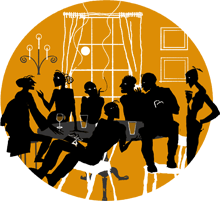Identity and Equality – A Day of Debate
Fri, Mar 9 2018 10:58
| Permalink
Takes place on Saturday 21st April from 11.30am to 4.45pm, upstairs at the Old Joint Stock, 4 Temple Row West, Birmingham B2 5NY
What do disputes between identity-based groups such as women and transsexuals really mean today? Do they have a genuinely progressive dimension in society, or are they simply about conformity and hollow etiquette?
Admission fee is £10. Buy your ticket on Eventbrite.
The day’s itinerary:
11.30am to 1.00pm. Session 1 – What do women want?
Months after American actress Alyssa Milano’s tweet gave birth to the #MeToo social-media movement, the fascination with alleged sexual harassment scandal shows no signs of abating.#MeToo has opened up a conversation about sexual harassment, we’re told. But is this a one-sided conversation, in which women who fail to toe the #metoo line are labelled misogynists, patriarchs and rape apologists?
And when men have lost their jobs for everything from accusations of knee touching to attending men-only events, is the meaning of sexual harassment losing clarity? Or does metoo mark a significant step forward, with outmoded sexual behaviour exposed and made unacceptable?
Is feminism preoccupied with frightening women about sex? Is the #MeToo movement a positive change for women's freedom? Or is today's sex panic an example of how reactionary feminism has become?
Speakers:
Ella Whelan – Ella is a journalist and a campaigner for free speech.Additional speakers to be confirmed
Readings
Feminism has become obsessed with victimhood. Irish Times, 2018Parents reckon feminism 'is not relevant'. The Scotsman, 2018
Banning F1 grid girls is a distraction from the wider workplace war. Spiked, 2018
Policing pregnancy: The new attack on women's autonomy. Spiked, 2017
13.00-13.45. Lunch
Lunch is not provided but is available from the bar downstairs.13.45-15.15. Session 2 – Race and racism today: what can we learn from Martin Luther King?
To mark the 50th anniversary of the assassination of Dr Martin Luther King Jr, we reappraise the legacy of his most famous dictum. In his iconic speech, King stated: ‘I have a dream that my four little children will one day live in a nation where they will not be judged by the color of their skin, but by the content of their character.’But for all our reverence for this magnificent vision, King’s positive aspirations to eradicate racial difference and his commitment to equal treatment are now under severe strain.
Identity politics seems to have seized the reins from the civil rights movement – but how well does it align with King’s call to judge people by the ‘content of their character’? If judging people by their skin colour ever went away, it seems to be back with a vengeance.
Today’s social justice warriors – many of whom invoke King’s name – demand racially-segregated safe spaces on campuses and espouse ideas that are diametrically opposed to the universalist philosophy that informed King’s work. Are they more preoccupied by biological features than by character?
What would Martin Luther King make of today’s intersectional politics of identity? What can we learn from Martin Luther King?
Speakers:
Michell Chresfield – Michell is a lecturer in US History at the University of BirminghamVincent Gould – Vincent is an artist, actor and satirist
Cheryl Hudson – Cheryl is a lecturer in American History at the University of Liverpool
Readings
On MLK Day, stand against identity politics. National Review, January 2017The ignoble lie: How the new aristocracy masks its privilege. First Things, 2018
Identity politics - What is to be done? Huffington Post, May 2017
Identity politics is killing college life. Spiked, September 2013
15.15-15.30. Drinks break
15.30-16.45. Session 3 – Exploring equality
We live at a time when the question of equality is polarising our political landscape. This talk will examine equality of opportunity, equality of outcome and equality of treatment. These are three markedly different areas of equality, each with distinctive implications for the way we organise society.The passion and anger that tends to accompany equality activism today can obscure the conflicts that arise between different forms of equality. Activists demanding one form of equality (such as outcome) fail to see that this very equality might negate another form of equality (such as treatment). There is also a worrying tendency to see equality as a categorical imperative that trumps other social values, including difference, diversity and competition.
Equality is often used to justify demands that express irrational resentments and entitlement, hindering attempts to tackle genuine discrimination where it arises. This talk will explore these problems and attempt to offer some solutions that prioritise the flourishing of individuals, rather than groups.
Speaker
Dr Greg Scorzo – Greg is a director and editor of the online magazine Culture on the Offensive.Comments
